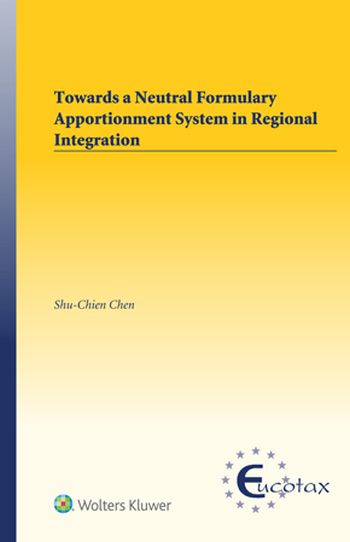
Towards a Neutral Formulary Apportionment System in Regional Integration is a crucial and foresighted book demonstrating how formulary apportionment (FA) – an approach by which a multinational corporation pays each jurisdiction’s corporate tax based on the share of its worldwide income allocated to that jurisdiction – can achieve the much-sought goal of aligning value creation and taxation. Through intensive analysis of the European Union’s (EU’s) Common Consolidated Corporate Tax Base (CCCTB) Directive Proposal(s) and comparison to the United States (US’s) formulary apportionment experience, the author elucidates how the perceived problems with an FA system can be overcome and lays out the necessary elements for its feasibility.
What’s in this book:
Delving deep into the debates around formulary apportionment and its theoretical foundations, the book furnishes a prototype for reconstructing the normative framework for the EU’s tax reform by clearly analysing the implications of the following and more:
The book comprises an in-depth comparison of the EU’s formulary apportionment tax reform option and FA systems existing in the United States (US) at state level, including reference to relevant US case law and legislation.
How this will help you:
Formulary apportionment is gaining increasing acceptance and attention as a possible option to address the problem of base erosion and profit shifting. This book will prove indispensable to taxation authorities, tax practitioners, and scholars in its deeply informed and systematic guidance on good practices and prevention of problematic experiences in constituting and executing an effective and market-neutral FA system.